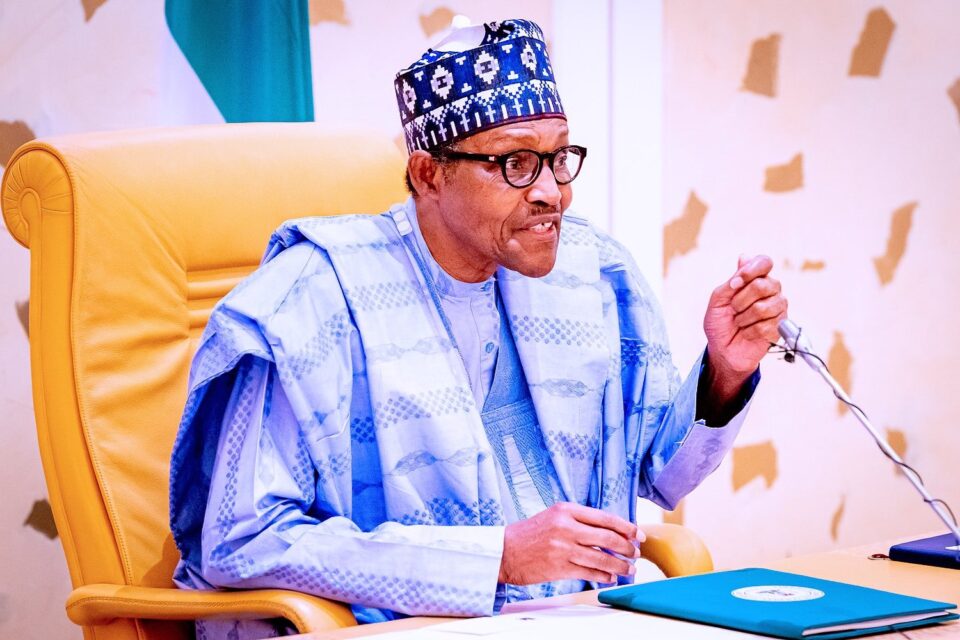By Chesa Chesa
The Federal Government has been advised to engage community and traditional institutions trusted by victims of insurgency and banditry to support ongoing peace-building interventions of various stakeholders in Nigeria’s North-East.
The strategy also advocates for the inclusion of appropriate communication intervention programme, such that in integrating the people, the trusted institutions and channels through which they communicate can be used to reach the widest possible number of persons.
The advice is contained in a research project conducted by Nigerian development experts at Nextier, a leading policy think-tank, which noted that the United Nations Development Program (UNDP) estimates the number of deaths directly related to the conflicts to be 350,000, while 314,000 people died from indirect causes.
The research further points out that post-conflict reintegration of groups that had supported the security institutions in their anti-terror and anti-insurgency campaigns requires policy interest and action, such as legitimate exit strategies.
Besides, since it is a systematic participatory design that requires special expertise and skill, the Federal Government should consider engaging experts in the field to design an engagement framework, the report stated.
It was authored by Dr. Ben Nwosu, an Associate Consultant at Nextier SPD and a Senior Research Fellow, Institute for Development Studies, University of Nigeria, as well as Dr. Ndu Nwokolo, a Managing Partner and Chief Executive at Nextier SPD and an Honorary Fellow, School of Government and Society, University of Birmingham, United Kingdom.
The experts noted some of the peace-building interventions to include the Early Recovery Programme for the North-East in the three states of Adamawa, Borno and Yobe, funded by the government of Norway, and implemented by the UNDP; as well as the Multi-Sectoral Crisis Recovery Project of the International Development Association, among several others that add to the work of the North-East Development Commission (NEDC),
Making reference to earlier findings by the Kukah Centre on peacebuilding interventions in the North-East, the report highlighted some inadequacies which could be surmounted by leveraging on the role and importance of traditional institutions in peace programming.
“First, a few results include a feeling of exclusion in decision-making from local and international responses to the insurgency. Thus, not adequately considered are their fears, needs and concerns. Hence the programming fails to reach the needs of the most vulnerable.
“Secondly, the findings also see the programme of reintegration of ex-combatants as an imposed one which could lead to reprisals
“Thirdly, the interventions fail to address the tensions created by the insurgency among different cultural communities like ethnic and religious communities, Internally Displaced Persons (IDPs) and host communities; returning IDPs and members of their communities who did not flee.
“Fourthly, mistrust continues to exist between communities and security actors. Among several study findings, the above four have implications for community engagement in designing a lasting peace in the North-East.
“This report argues that the existing peace programming does not involve good communication to properly mainstream voices and needs from below.
“By not correctly engaging the community and traditional institutions that would support the internalisation of peace programming objectives, the outcome is unlikely to be sustainable.
“For the community and traditional institutions, the missing voices in the North-East Peacebuilding designs both the Federal and State governments collaborate with international donors to strengthen security and rebuild the North East”, the Nextier report stated.
Still highlighting the essence of better communication, the research work lamented the “top-down” solutions sometimes proffered by government agencies, which may advertently given the intense division and distrusts that the insurgency has occasioned in the North-East.
“For instance, Christian and Muslim groups in the Michika local government area of Adamawa State trade blame each other for the cause of the insurgency. This feud between the two groups shows that the local government officials have assigned separate market days at the community’s largest market, called Michika Central Market, to prevent conflict.
“The necessary cross-cultural dialogue among ethnic, religious and other groups is yet to be integrated into peace programming. The point is that the interventions and the institutions through which they are carried out do not take adequate information from the intervention subjects.
“Overall, communication interventions for engaging with communities and traditional institutions are too limited or non-existent. Consequently, it poses a danger to the sustainability of the results of the current efforts”, the report added.


